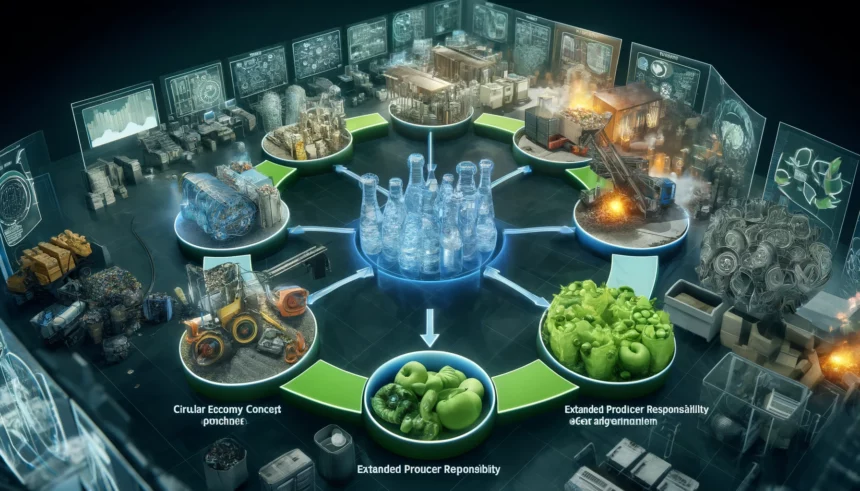As we face global environmental challenges, waste management and recycling are becoming more important than ever. From reducing landfill waste to promoting sustainable practices, several innovative ideas are transforming the industry.
Let’s explore seven initiatives that are making a significant impact in waste management and recycling.
1. Embracing the Circular Economy
- Concept: Shift from a linear to a circular economy model.
- Goal: Keep products and materials in use for as long as possible.
- Strategies:
- Product redesign for easier recycling.
- Remanufacturing and repairing items instead of discarding them.
- Creating closed-loop supply chains to reuse materials.
By adopting circular economy principles, we can reduce waste generation and conserve valuable resources.
2. Advanced Recycling Technologies
- Chemical Recycling: Breaks down plastics into their basic components for reuse.
- Improved Sorting and Separation: Enhances the efficiency of recycling facilities.
- Outcome: Recovery of valuable materials from mixed waste streams, tackling plastic pollution more effectively.
These technologies are opening up new possibilities for dealing with different types of waste.
3. Waste-to-Energy Solutions
- Process: Converts non-recyclable waste into energy.
- Methods: Incineration or anaerobic digestion.
- Benefits:
- Reduces waste volume sent to landfills.
- Generates renewable energy.
Advancements in emissions control and energy recovery systems are making these solutions more sustainable.
4. Extended Producer Responsibility (EPR) Programs
- Concept: Makes producers responsible for the end-of-life management of their products.
- Incentives: Encourages product design for recyclability and sustainable packaging.
- Actions:
- Implement take-back programs.
- Invest in recycling infrastructure.
- Support waste reduction initiatives.
EPR programs shift the responsibility and costs of waste management back to producers, fostering more sustainable practices.
5. Data-Driven Waste Management
- Technology: Uses data analytics and IoT devices to monitor waste bins in real-time.
- Advantages:
- Optimizes collection routes and schedules.
- Reduces operational costs.
- Predictive Analytics: Analyzes historical data to forecast waste generation trends.
This integration of technology is revolutionizing how we collect, sort, and dispose of waste.
6. Innovative Packaging Solutions
- Biodegradable and Compostable Materials: Alternatives to traditional plastics.
- Initiatives:
- Package redesign to minimize waste.
- Lightweighting to reduce material usage.
- Reusable packaging systems.
These solutions aim to reduce the burden on landfills and promote a circular economy mindset among consumers and businesses.
7. Community Involvement and Education
- Public Awareness Campaigns: Educate people about the importance of waste reduction, recycling, and composting.
- School Programs and Community Initiatives: Foster a culture of environmental stewardship.
- Impact: Empower individuals and communities with knowledge and resources to take collective action towards a zero-waste future.
Engaging the community is crucial for driving behavioral change and promoting sustainable waste management practices.
Conclusion
The future of waste management and recycling depends on innovation, collaboration, and sustainability. By embracing circular economy principles, leveraging advanced technologies, and implementing policies like EPR programs, we can tackle the challenges of waste generation and resource depletion. Together, through creative solutions and collective efforts, we can build a more resilient and sustainable waste management system for future generations.
















